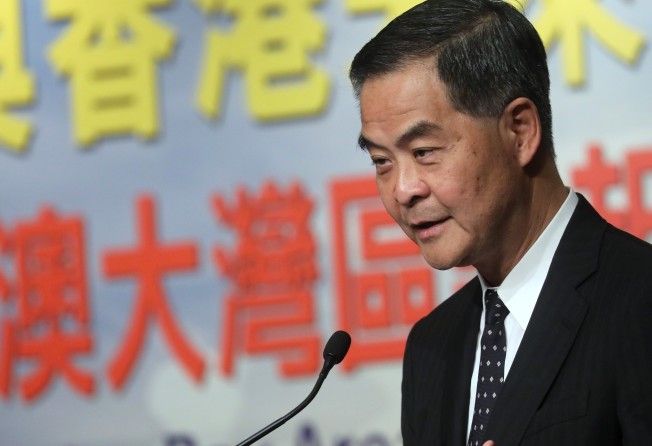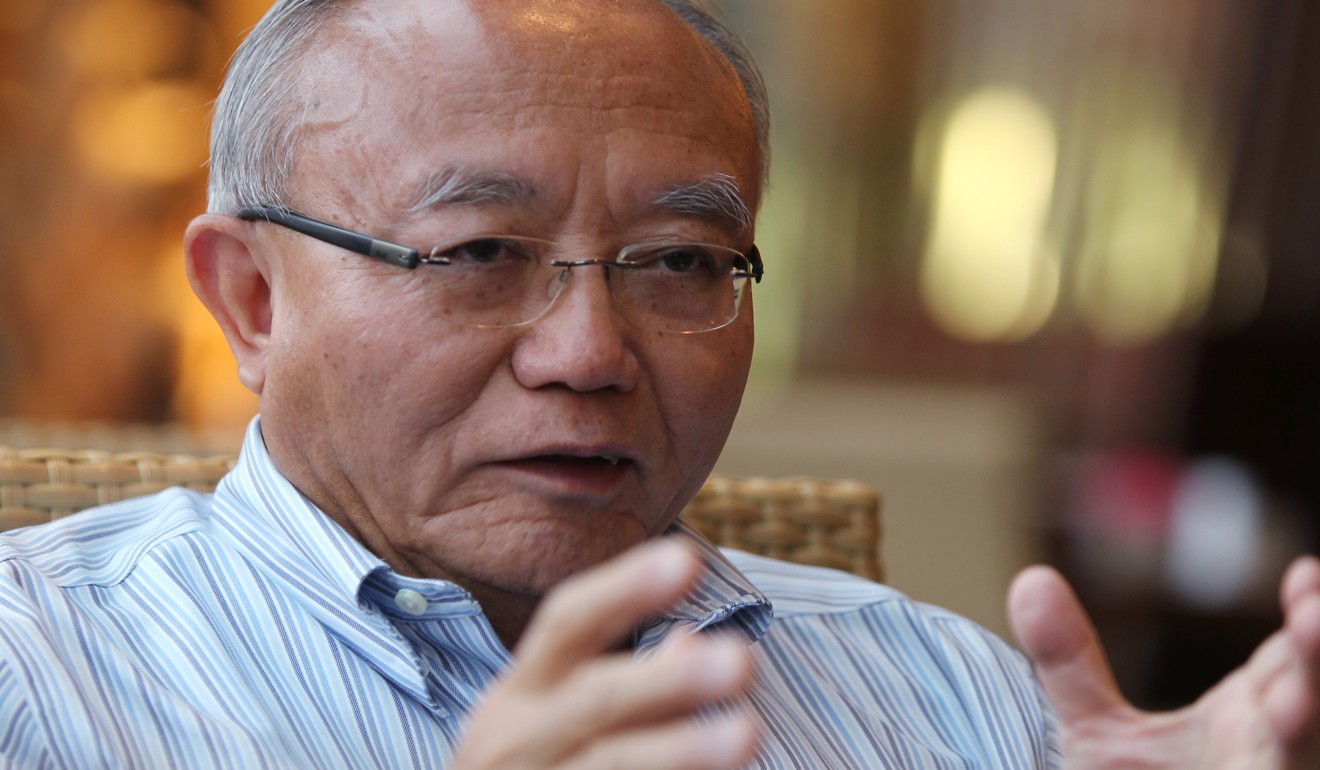Former Hong Kong leader Leung Chun-ying expected to head international aid foundation thought to be a Beijing-backed soft-power push
- GX Foundation to focus on humanitarian aid, according to former city chief
- Other directors include leaders of state-owned firms, which observers say suggests central government backing

Former Hong Kong leader Leung Chun-ying is set to head an international aid foundation he is launching with 20 business heavyweights from the city and mainland China in what is being seen as a Beijing-backed soft-power push.
There is little information about what exactly the GX Foundation will do, but according to its articles of incorporation, “The company is established for the promotion, organisation and carrying out of international humanitarian aid and related activities on a non-profit-making basis.”
Leung, now a vice-chairman of the nation’s top political advisory body, was appointed on January 24 as director of the company, which takes its name from the Mandarin words gong xiang, which means sharing.
Responding through the Office of Former Chief Executives, Leung said he was doing unpaid work for GX, and had informed the government of his role the day after his appointment.
“The nature of the work of the foundation is humanitarian aid which will be funded by donation,” he said, without elaborating.
Leung is expected to chair the foundation, a source familiar with the matter said.
According to the Companies Registry, 20 other big names were made directors on the same day as Leung, including: Henderson Land vice-chairman Peter Lee Ka-kit; Chinese Estates Holdings chairman Lau Ming-wai; Bank of Asia deputy chief executive Brian Li Man-bun; and New World Development director Peter Cheng Kar-shing.
Another director, Raymond Lee Man-chun, chairman of Lee & Man Paper Manufacturing, said he was invited to join very recently and the foundation aimed to help people in need.
“We don’t have any concrete plans at the moment,” he said.
Former health minister Dr Ko Wing-man and executive councillor Arthur Li Kwok-cheung also joined the board.
Directors with mainland Chinese backgrounds were mostly from the medical and infrastructure sectors, with some from state-owned enterprises. They included Zhou Yong, vice-president of China State Construction Group and chairman of China Overseas Holdings, and Wen Gang of China Communications Construction.
Beijing loyalists and observers suggested such a high-powered group could only be assembled with central government involvement. Beijing was behind the new foundation, attracted by its soft-power potential, they concluded.
“With leaders of state-owned enterprises joining, that could only happen with Beijing’s support and endorsement,” Brave Chan Yung, a local deputy to the National People’s Congress, said.
“There are representatives from mainly medical and construction sectors. I think the foundation will provide aid in these areas and enhance Chinese influence in the world.”
Chan also believed Leung, being a vice-chairman of the Chinese People’s Political Consultative Conference, was likely to take the lead and head the foundation.
Lau Siu-kai, vice-chairman of the Chinese Association of Hong Kong and Macau Studies, took a similar view.

“Only with Beijing’s blessing and support could the foundation build such a strong network,” Lau said. “The Beijing government has always hoped to build soft power with non-governmental institutions and improve foreign perceptions of China.”
The foundation’s other mainland-based directors included Shi Shengyi of the Beijing China National Pharmaceutical Group, and Zhang Huanping, deputy general manager of Chinese medicine company Beijing Tong Ren Tang.
Businessmen from the private sector included Wu Yifang and Wang Donghua from Shanghai, and Zhang Dan from Liaoning.
Since his term as chief executive ended in 2017, Leung has also been appointed as a director of two companies named after major mainland development projects: the Belt and Road Hong Kong Centre Company; and the Bay Area Hong Kong Centre Company.
Beijing has been trying to sell its ambitious “Belt and Road Initiative” to the world since it launched in 2013 as a national drive to expand China’s economic and political influence through key investment projects using its main land and sea trade routes.
The plan, proposed by President Xi Jinping, covers more than 65 countries from Asia, Africa and Europe, covering 30 per cent of the global economy and more than 60 per cent of the world’s population.
But negative perceptions and suspicions about Beijing’s intentions have caused setbacks ranging from the withdrawal of contracts signed by other nations to reassessments of costs previously agreed upon, sometimes due to changes of government in participating countries.